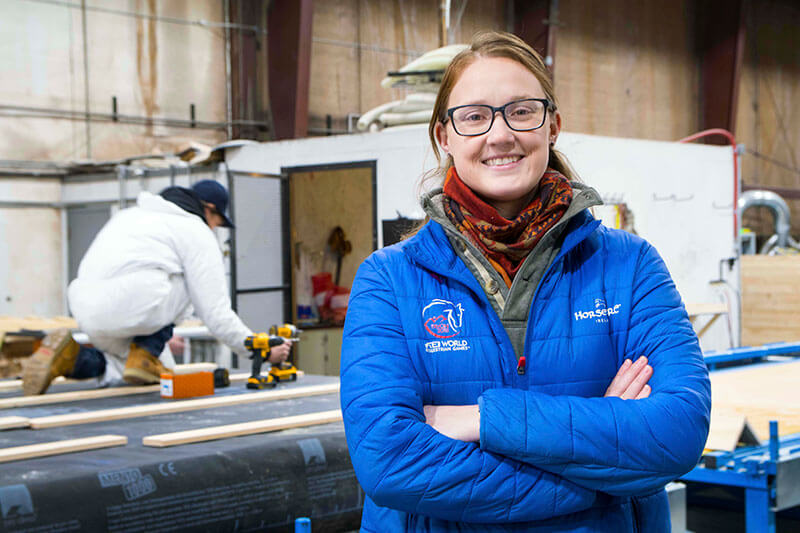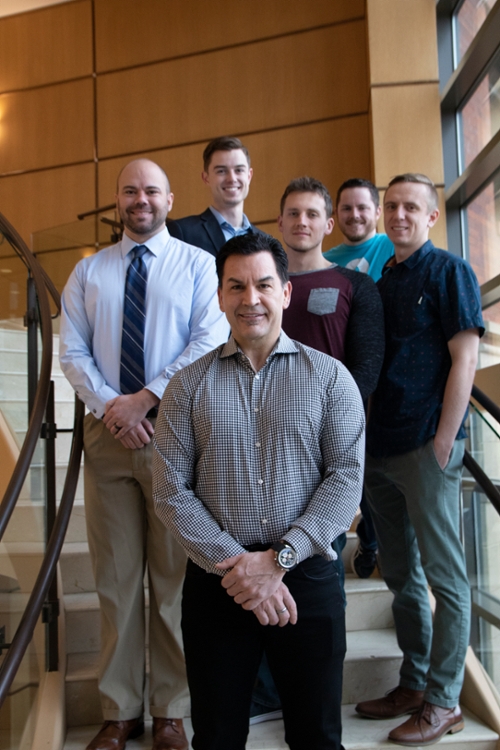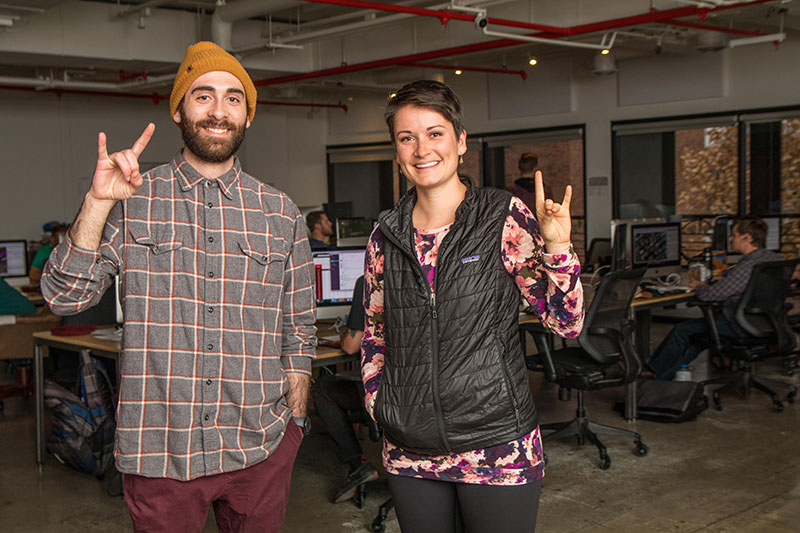Three years after the Rural Jump-Start program was created, numerous relocated businesses provide employment opportunities for CMU students and alumni, and a boost to the local economy
In 2016, Colorado’s Office of Economic Development and International Trade (OEDIT) chose Mesa County as the first of three counties to participate in the Rural Jump- Start Program.
This program provides tax incentives to employers and employees at new or expanding businesses within designated regions in Colorado that meet specific wage and employment targets.
Not surprisingly, the generous incentives have made Jump- Start the number one tool for business recruitment to Mesa County, according to Steve Jozefczyk, Grand Junction Economic Partnership (GJEP) deputy director.
To date, 12 counties have formed Jump-Start zones and 14 businesses are participating in the Colorado program. Of this total, 13 are in Mesa County and one is in Montrose County.
Among them is Phoenix Haus, a manufacturing company that relocated from Michigan to Grand Junction in 2017.
Phoenix Haus produces energy-efficient, panelized homes. Operations Manager Kate McDonald stresses that Jump-Start was “a big factor in our decision to come to Grand Junction.”

An important factor was the opportunity to work closely with CMU faculty and students.
To participate in Jump-Start, businesses apply through a local college or university and must show how they will work with the university to create employment for students and new graduates.
McDonald is thrilled with the move to western Colorado. “We wouldn’t be in business if we were in Michigan,” she explains. “Everything is going much better since we got here.”
Page Tucker is the founder and CEO of ProStar Geocorp, a Grand Junction company that develops and utilizes its patented geospatial intelligence software for precision mapping. ProStar Geocorp works with companies and government agencies to map underground assets like pipelines and utilities with precision down to the centimeter.

Tucker was attracted to the Jump- Start program by the tax incentives and his company was the first one accepted into the program.
“For early stage startups, anytime you can get a tax break it is significant,” he explained. “We also use the employee tax break for recruitment because it’s like offering employees a bonus.”
ProStar Geocorp is on a path to be the first publicly-traded company headquartered in Grand Junction. The 15 employee company is growing rapidly with plans to expand by 10 employees in both 2019 and 2020.
Many of these new hires will come directly from CMU.
Another rapidly expanding Grand Junction tech firm looking to CMU for new hires is Kaart Group. A geospatial company, Kaart gathers and maintains geographic data for countries around the world.
Kaart is headquartered in Grand Junction, with offices in San Francisco, California, and Seattle, Washington, and eight other countries. Kaart employs 40 people locally and 100 in total, according to company CEO Aaron Young.
Young said that Kaart has nearly outgrown the Jump- Start program. “We can only qualify for eight employees and we’re currently looking to hire 20 CMU interns and another 30 to 40 full-time graduates in Grand Junction.”
Kiana Ziola and Louis Morales are among the many CMU graduates hired by Kaart.

Ziola’s data collection, field work and GIS experience made her a good fit for the company.
“CMU did a great job preparing me. I spent a lot of time in the field and I felt comfortable and prepared for tasks,” she said. During her first year of employment, Ziola visited Morocco, South Africa and Greece to collect and organize mapping data.
Morales also credits CMU with his success at Kaart. “I was never into school,” he explains, adding that his professors in the mass communication program changed his perspective on education. “My professors understood that while school is not for everyone, certain elements of it are. They helped me to find these elements, stay in school and pursue a career.”
Morales said Grand Junction’s growing tech sector is creating “a good mixture of people” and an increasingly diverse workforce.
Both he and Ziola are enthusiastic about the future of the local tech sector.
“It’s interesting to see how growing companies like Kaart influence the way students look at their futures in Grand Junction,” said Ziola. “The future just continues to grow here.”
